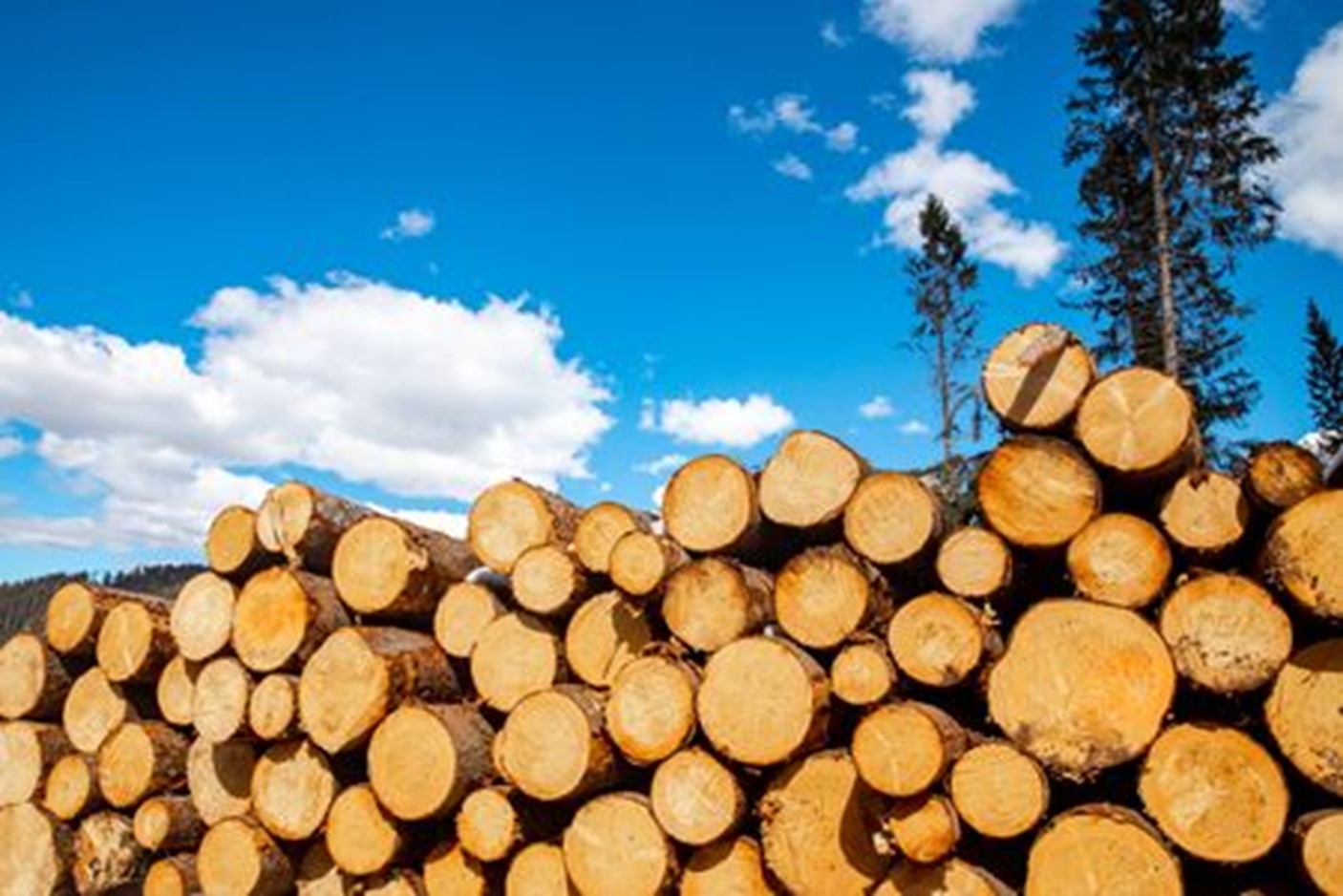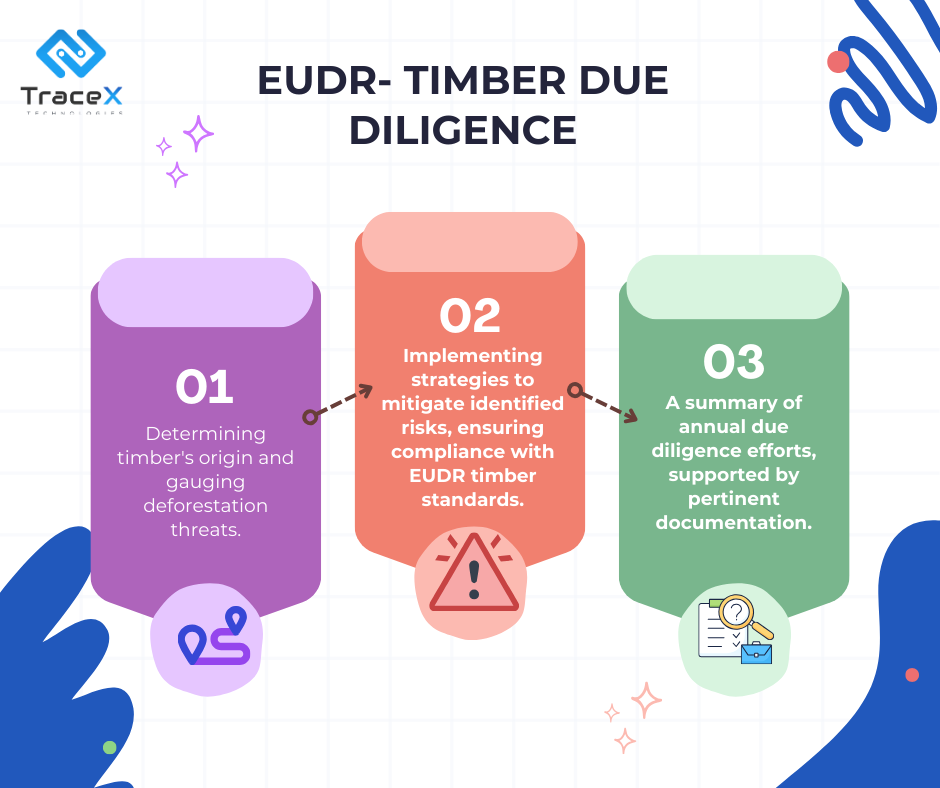Contact: +91 99725 24322 |
Menu
Menu
Quick summary: Explore how the EU Deforestation Regulation (EUDR) serves as a potent tool in combating illegal logging, safeguarding forests, and promoting sustainable timber sourcing. Learn about the key provisions of the EUDR and its impact on curtailing illicit logging activities worldwide

Illegal logging poses a significant threat to our planet’s forests, biodiversity, and climate. It contributes to deforestation, habitat destruction, and loss of valuable ecosystems. Fortunately, the European Union has taken a proactive step by introducing the European Union Deforestation Regulation (EUDR) to combat this environmental menace.
According to ZSL, accounting for one-sixth of global trade and over $4 billion worth of tropical timber and wood furniture imports (2022), the EU wields significant influence over global industries and commodity trade.
Timber has been deeply assessed by European Union deforestation regulations (EUDR). EUDR with a focus on curbing deforestation, this regulatory framework places a spotlight on industries heavily reliant on timber, challenging them to adhere to stringent requirements ensuring the legality and sustainability of their products. To focus on the timber sector, EUDR has given a special focus on. towards responsible sourcing and trade practices. It demands a paradigm change, necessitating a thorough examination of supply chains, verification of legality, and adherence to sustainability principles.
Illegal logging, a lucrative industry worth billions of dollars, poses a significant threat to forests globally. It accelerates deforestation, particularly in crucial conservation areas, and its destructive reach extends to indigenous communities, local traditions, and wildlife habitats. Illegal logging encompasses various unethical practices, including employing corrupt tactics to access forests, unauthorized tree felling in protected areas, and exceeding legal timber extraction limits. Moreover, it involves deceptive customs declarations during international trade and evasion of applicable taxes and charges. Beyond the evident environmental ramifications, illegal logging inflicts severe social consequences. The industry fosters child and forced labor, violates indigenous land rights, and fosters hazardous working conditions, illustrating its pervasive and detrimental impact on communities worldwide.
The EU Deforestation Regulation serves as a significant boon in combating the scourge of illegal logging through stringent measures and regulatory frameworks. By imposing strict requirements on companies to ensure that their supply chains are free from deforestation and ecosystem degradation, the regulation effectively compels businesses to trace the origins of their timber and related products. This transparency helps in identifying and mitigating the risk of sourcing from illegally logged forests. Additionally, the regulation incentivizes companies to adopt sustainable practices and engage in responsible sourcing, thereby reducing the demand for illegally harvested timber.
The European Union Deforestation Regulation, a successor to the EUTR, aims to enhance the traceability and legality of timber products entering the EU market. EUDR places a greater emphasis on due diligence throughout the entire supply chain, from the extraction of raw materials to the final product reaching consumers. This regulation is part of the EU’s broader commitment to combating illegal logging, deforestation, and promoting sustainable forest management practices.
The EUDR applies to all operators within the EU, regardless of whether they handle local or imported goods. It covers commodities such as wood, palm oil, soya, cocoa, coffee, and rubber.
Robust traceability is crucial. Geolocation data helps verify the sources of timber. EUDR Solutions like TraceX provide precise geolocation information, aiding in sustainable sourcing.
Regular monitoring and reporting are mandatory, with penalties for non-compliance.
Only 13.3% of major tropical timber and pulp companies publicly monitor deforestation within their own operations. (ZSL SPOTT assessment, Aug 2023)
EUDR holds operators accountable for their supply chains. Transparency ensures that consumers can make informed choices about sustainably sourced timber products.
Illegal logging threatens the world’s forests, which play a vital role in carbon sequestration and supporting diverse ecosystems. EUDR encourages responsible practices that protect our natural heritage.
Sustainable timber practices contribute to long-term economic stability. Compliance with EUDR enhances market access and reputation.
From conducting risk assessments to implementing traceability solutions, learn how to effectively address the challenges of EUDR compliance
Discover the essential steps for achieving EUDR compliance and safeguarding your business against deforestation risks
Forests are the lungs of our planet, yet deforestation continues to threaten their vital role. Aiming to curb this destruction, the European Union introduced the EU Deforestation Regulation (EUDR), a game-changer for the timber industry.
The global timber industry stands as a cornerstone of various economic sectors, contributing significantly to construction, furniture manufacturing, and paper production. As of the latest available data, the industry is characterized by a vast network of players, ranging from small local enterprises to large multinational corporations. Geographically, timber extraction and processing occur on every continent, with key producers including countries in Europe, North America, South America, Africa, and Asia.
Timber sourcing and supply chains have traditionally been complex and multifaceted, involving numerous intermediaries from forest extraction to end-user markets. Challenges arise due to the often-convoluted nature of these supply chains, making it difficult to trace the origin of timber products accurately. In some cases, this complexity has facilitated the inclusion of illegally harvested wood into the market, raising concerns about sustainability and legality.
Current practices vary widely, with some companies prioritizing sustainable sourcing and others struggling to enforce ethical standards. Certification schemes such as the Forest Stewardship Council (FSC) and the Programme for the Endorsement of Forest Certification (PEFC) have been instrumental in promoting sustainable practices, but their adoption is not universal across the industry.
The analysis reveals a need for increased transparency and accountability in timber supply chains. The lack of standardized practices across the industry poses challenges for compliance with EUDR, as it requires a cohesive and standardized approach to due diligence and traceability.
Traceability solutions providing comprehensive tracking and documentation of the entire supply chain. These solutions enable companies to trace the origin of timber products back to their source forests, ensuring transparency and accountability. By capturing and recording key data points such as location, harvest dates, and responsible forest management practices, traceability solutions help verify the legality and sustainability of timber throughout its journey.
Moreover, traceability solutions facilitate risk assessments by identifying high-risk sources of timber associated with deforestation or illegal logging activities. This allows companies to implement targeted mitigation measures and avoid sourcing from non-compliant suppliers. Additionally, traceability solutions enable companies to demonstrate due diligence in their supply chains by maintaining detailed records and documentation, which are essential for regulatory compliance and certification requirements.
Overall, traceability solutions empower companies to adhere to EU deforestation regulations for timber by promoting transparency, accountability, and responsible sourcing practices throughout the supply chain. By leveraging these technologies, businesses can contribute to the conservation of forests and biodiversity while meeting regulatory obligations and consumer demands for sustainable products.

The future of the timber sector is poised for significant transformation under the influence of the European Union Due Diligence Regulation (EUDR). Predictions suggest a dynamic landscape characterized by both challenges and opportunities.
Larger enterprises with the resources to adapt quickly to EUDR requirements are likely to gain a competitive edge. This may lead to market consolidation, with smaller, less-prepared businesses facing increased challenges in accessing the EU market.
Predictions indicate a broader adoption of advanced technologies for traceability and due diligence. Blockchain, satellite imaging, and other innovative solutions will become standard tools, allowing companies to ensure the legality and sustainability of their timber products more effectively.
The demand for timber products with recognized certifications, such as FSC and PEFC, is expected to rise. Consumers and businesses alike will prioritize products that demonstrate adherence to sustainable and ethical sourcing practices.
Anticipated challenges in global supply chains will drive increased collaboration and harmonization efforts. Governments, NGOs, and industry stakeholders will work together to create standardized practices, facilitating compliance with EUDR on a global scale.
The timber sector stands at a critical juncture, facing the transformative influence of the European Union Due Diligence Regulation (EUDR). As we have navigated through the intricacies of the global timber industry, analyzed current practices, and assessed the sector’s preparedness for EUDR, a nuanced understanding of both challenges and opportunities has emerged.
The EUDR heralds a new era, demanding unprecedented levels of transparency, traceability, and sustainability from the timber industry. Predictions for the future envision a landscape where market dynamics shift, technology integration becomes ubiquitous, and collaboration on a global scale becomes imperative. Larger enterprises, quick to adapt, may consolidate their positions, while smaller businesses face the challenge of catching up.
The timber sector’s journey under EUDR is an opportunity to redefine its narrative – from a sector facing scrutiny to one leading in sustainability and responsibility. By heeding the recommendations and answering the call for collaborative efforts, the industry can pave the way for a future where timber sourcing is not only legal and traceable but truly sustainable. The path forward involves collective commitment, innovation, and a shared vision for a timber sector that balances economic viability with environmental integrity. As regulations evolve and industries transform, the timber sector has the chance to emerge as a model for responsible resource management, contributing to a more sustainable and resilient global future.
